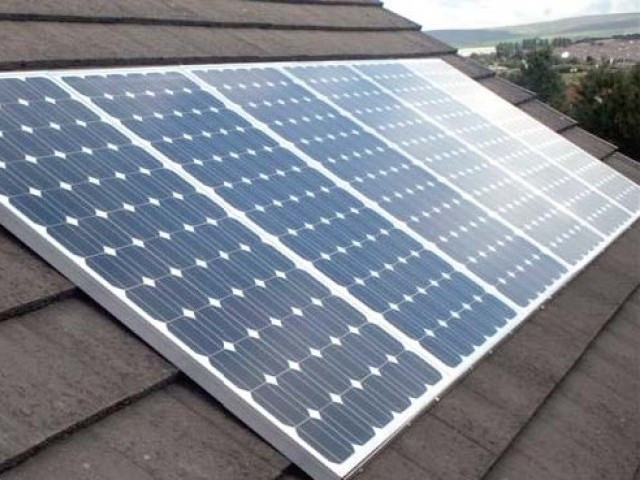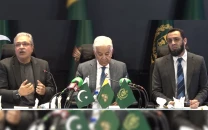Electricity provision bound by party lines
Solar initiatives aimed at providing subsidised equipment to rural areas are reserved for PPP-loyalist villages

The provision of electricity is one of the bare minimum objectives of development. Yet even today, there are areas across the country where people have to think twice before rationally casting a vote since their access to electricity remains contingent upon favouring a particular party.
According to the digital census of 2023, 54 per cent of the total population of Sindh lives in rural areas, The majority of people residing in these areas neither have access to electricity from the national grid nor have benefited significantly from the provincial government's renewable energy projects worth billions of rupees.
In the fiscal year 2015-16, the Sindh government spent Rs1,500 million on a project to provide affordable electricity through solar energy to off-grid areas located in the remote villages of rural Sindh. The project, which was to be completed in two years, could not reach completion even after six years.
Under this project, solar panels, batteries, and other equipment were to be provided at subsidized rates to locals across different districts including Sanghar and Dadu. However, the benefits of the initiative have failed to reach the target population. While some locals have migrated out of the village due to economic problems or floods, others have apparently been denied solar panels on the grounds of partisan bias.
The majority of the complaints surrounding an unfair distribution of solar panels came from the villages of Khipro Tehsil in Sanghar. Locals alleged that the project purposefully ignored PPP-nonaligned voters. Referencing the situation is his village, Ghulam Nabi, a local claimed that 36 solar systems had been approved for his village, however, only 12 had been distributed.
Similar complaints were received from the Johi Tehsil of Dadu regarding the partial implementation of the project's objectives. Seconding villagers' accusations, local social leader Abdul Qadir Lakhir also made similar assertions against the government's true motives. "Even in our district, villages which are known to vote against the PPP have been excluded from the initiative," said Lakhir.
In addition, the Sindh government launched various other projects to provide solar energy to the villages of the province, but due to various reasons, they too failed to deliver results. One such initiative was the 'Sindh Solar Energy Project' in collaboration with the World Bank, which aimed to generate 450 MW of solar power.
Reportedly, under the project, 200,000 rural households were to be provided with concessional solar systems at a subsidy of 40 per cent, however, by June 2023, only 322 households received their promised packages. While some families could not afford the solar panels even at the subsidized rates others ended up with broken systems after migrating from their villages. According to a report of the Auditor General of Pakistan, families who were included in the project could not benefit much from it because of the floods. As many evacuated their areas and moved to nearby cities, the solar systems provided to them were damaged during transportation.
The report further claimed that the World Bank has expressed dissatisfaction over the work of the project. Under this project, the work of setting up solar parks to generate electricity was to be completed in five years but no progress has been made till date.
Data obtained from the Central Power Purchasing Agency has revealed that the national grid collects 46,753 MW of electricity from various sources. Surprisingly, a significant percentage of the electricity supplied across the country is produced in Sindh, which contributes to the generation of 75 per cent of wind and solar power. Despite contributing to the supply of electricity, locals in the province remain deprived of the basic provision.
The Express Tribune reached out to the Provincial Energy Minister Syed Nasir Hussain Shah for his comments on the matter however, he refused to respond.



















COMMENTS
Comments are moderated and generally will be posted if they are on-topic and not abusive.
For more information, please see our Comments FAQ